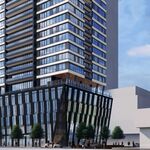Whoaccio
Senior Member
Ottawa moves to reshape the House

Democratic Reform Minister Steven Fletcher is in the advanced stages of preparing legislation that would reshape the House of Commons, adding dozens of seats to the three fast-growing provinces that are now seriously underrepresented.
Legislation could be ready this autumn, said a government official speaking on background, or in the new year.
The new seats would most likely be concentrated in the burgeoning suburban and exurban ridings that ring Toronto, Vancouver, Calgary and Edmonton. Voters in these ridings – typically younger and multiethnic –would finally wield a political clout that has been denied them in previous elections in favour of voters in mostly white rural ridings.
“We never had a debate and said that new Canadians, visible minorities, people who live in the GTA [greater Toronto], Calgary, Edmonton and the Lower Mainland [of British Columbia], young people, gays and lesbians – that they should all have less representation,†observes Matthew Mendelsohn, director of the Mowat Centre for Policy Innovation, a new Toronto-based think tank that examines the impact of public policy on the province of Ontario. “If we had framed it that way, no Canadian would support it.
“But we haven't had that debate. We've just allowed institutional inertia to carry on.â€
That may all be about to change.
A previous attempt at riding redistribution last year died on the order paper amid howls of complaint from Ontario Premier Dalton McGuinty, because his province received far fewer new seats under the proposed bill than its fast-growing population warranted.
A federal government official said that in the new legislation, “there will be different numbers,†ones that should please Ontario voters. The final figure, said an official, would be closer to the 21 seats that a representation-by-population formula would suggest the province is entitled to than the 10 seats offered in the previous bill.
Alberta could be awarded up to six seats and British Columbia up to seven, taking the current Parliament from 308 members to around 340.
Adding so many seats to the Ontario, British Columbia and Alberta totals could transform the political map, potentially putting an end to this decade's chronic run of unstable minority governments.
The Conservatives could be expected to dominate any new Alberta seats, would be favoured in added British Columbia ridings, and would be competitive in many of the new ridings in Ontario, which may be why they are keen on redistribution. Being just 12 seats shy of a majority, they would have the best shot at winning a majority in an enlarged Commons.
Still, the Liberal Party is the party of cities. Apart from their Atlantic redoubt, the party's remaining strength is mostly concentrated in Toronto, Montreal and Vancouver. The new ridings should offer fertile ground for Liberal victories.
But downtowns and older suburbs, where Liberals tend to dominate, are not the locus of population growth. Cities are growing at their edges, as new suburbs replace farmlands. It is no coincidence that Prime Minister Stephen Harper forsook the United Nations earlier this week for an event at Tim Hortons, or that Liberal Leader Michael Ignatieff spent Thursday in Burlington, in the Golden Horseshoe, decrying what he claimed were the inadequacies of the government's stimulus efforts.
One obvious loser in any parliamentary reform would be the Bloc Québécois, which seems to be in permanent possession of about 50 seats, delivered by Quebec voters who prefer to have a sovereigntist voice representing them in the House of Commons.
But the province isn't growing, and may even be on the cusp of population decline. Expanding the size of the House of Commons would weaken the influence of Quebec's voice in Parliament and the Bloc along with it.
The Bloc is expected to do all it can to prevent parliamentary reform.
If Parliament fails to pass the new legislation before the next election, Statistics Canada will report the results of the 2011 census to the Chief Electoral Officer, who will assign new seats to provinces as warranted. But it could take several years for the non-partisan electoral commissions to redraw the riding boundaries while consulting with the public and Parliament. And Ontario, especially, would continue to be underrepresented in the House.
“The bedrock principle of political legitimacy in a liberal democracy is one person, one vote,†observes Sujit Choudhry, a law professor at the University of Toronto who has studied the question of parliamentary representation. “This is what we fought for.â€
In Canada, today, population growth is now almost exclusively confined to major cities in Ontario, British Columbia and Alberta. But constitutional conventions and acts of Parliament over the years have entrenched protections for smaller and more rural provinces and for Quebec, creating a serious parliamentary skew.
If all ridings were equal, each would have about 108,000 people. But a Prince Edward Island riding typically has only 35,000 voters and a Saskatchewan riding 72,000, while Alberta ridings average 127,000 voters. It takes almost four Calgary votes to equal one PEI vote.
And the situation will only grow worse, because all the growth in Canada is occurring in those parts that are already most underrepresented.
Since stripping provinces of existing seats is legally and politically impossible, the only solution is to grow Parliament.
Critics maintain that failure to pass legislation to permit the new ridings would be, even if unintentionally, racist, since most population growth in Canada is driven by immigration, and the vast majority of immigrants are non-white. Underrepresenting high-growth areas in the House means depriving new, visible-minority voters of the electoral clout of voters in places that are almost uniformly white.
“Unfortunately there is a racial aspect creeping into this as well,†observes Prof. Choudhry. “So there's another cleavage developing, and in the long run that's dangerous.â€
It is not possible to reconfigure Parliament without cost – to the Atlantic provinces, to Quebec, to Manitoba and Saskatchewan. Even within Ontario, British Columbia and Alberta there will be losers, as rural ridings cede influence to their urban counterparts – assuming the electoral commissions apportion the new ridings in areas where the population is growing.
But there may be no alternative if Parliament is to evolve into something that more closely reflects today's urban, more multiethnic Canada. It is simply a question of how. And when.






